The tangled tale of Formula 1’s epic Rosberg – Hamilton rivalry, on and off the track, and its stunning conclusion
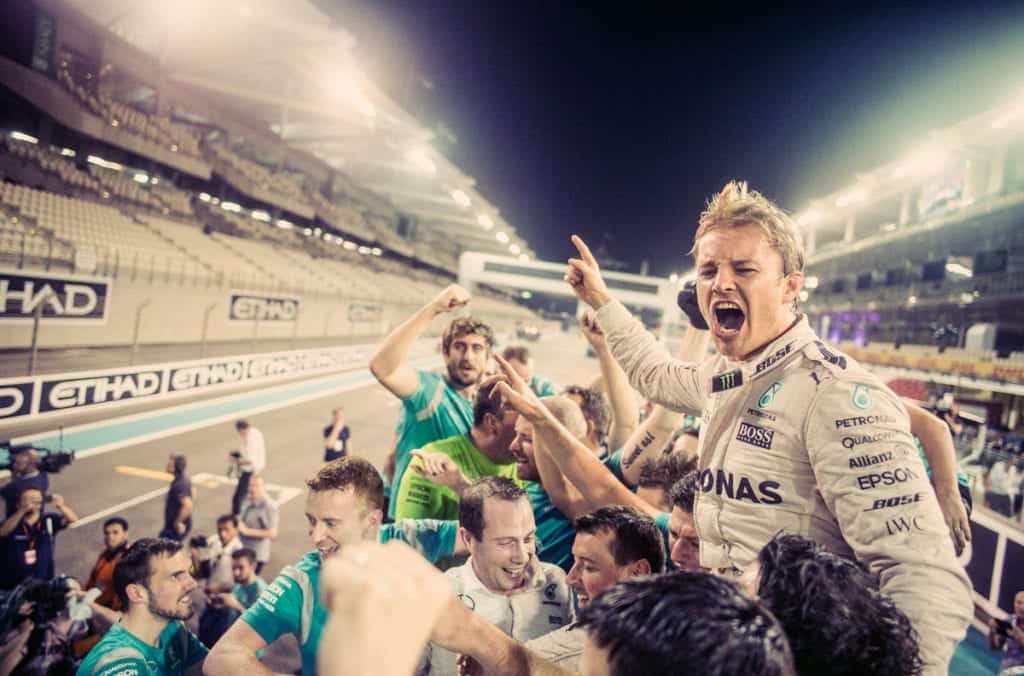
On November 27, in the Abu Dhabi Grand Prix, the 2016 Formula 1 World Championship was decided.
Mercedes-Benz Formula teammates Nico Rosberg and Lewis Hamilton fought it out. Hamilton won the race, but couldn’t prevent Rosberg – who had been playing second fiddle to him the past four years – from displacing him as World Champion.
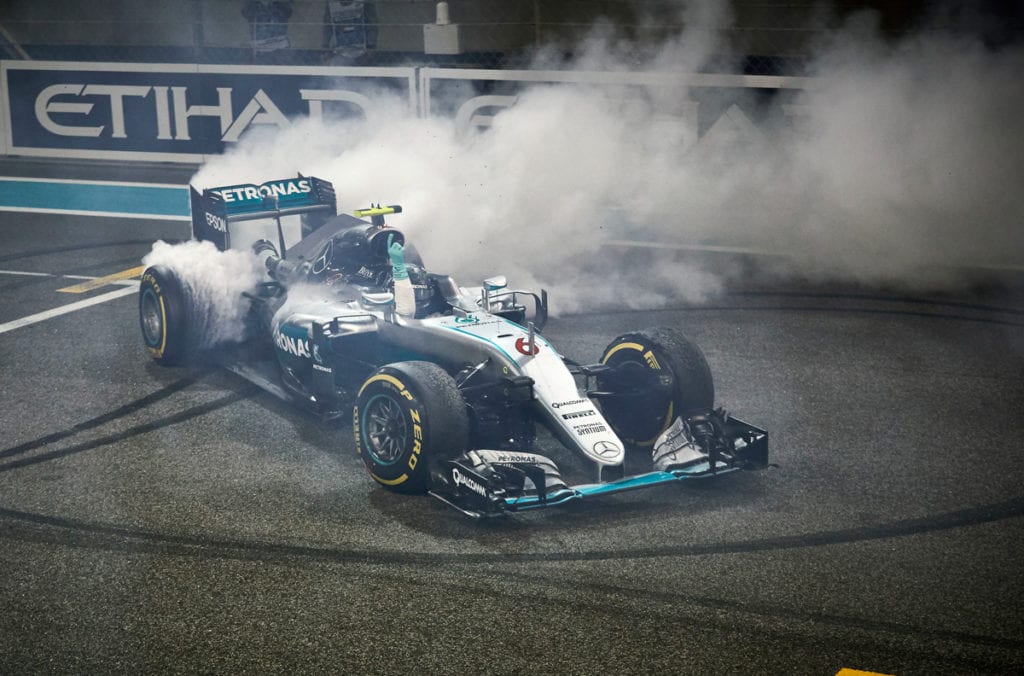
The two have famously been racing rivals since karting days 18 years ago. They grew up together as great pals off track, great rivals on it. In recent years the pressures of Formula 1 racing fractured their relationship. Indeed, frosty avoidance of eye contact and refusal even to speak to one another characterised much of the off-track TV coverage of the pair…both in victory and defeat. I am assured the same was true off-screen.
Now their rivalry is over, at least on track. Five days after becoming World Champion Rosberg shocked the racing world by retiring, walking away from it all. He cited family and personal reasons that usually are proffered as fig-leaves to disguise the real story. But this time they ring true. The explanation lies in both the pressures of Formula 1 and the interpersonal relationships that now attend life at the top.
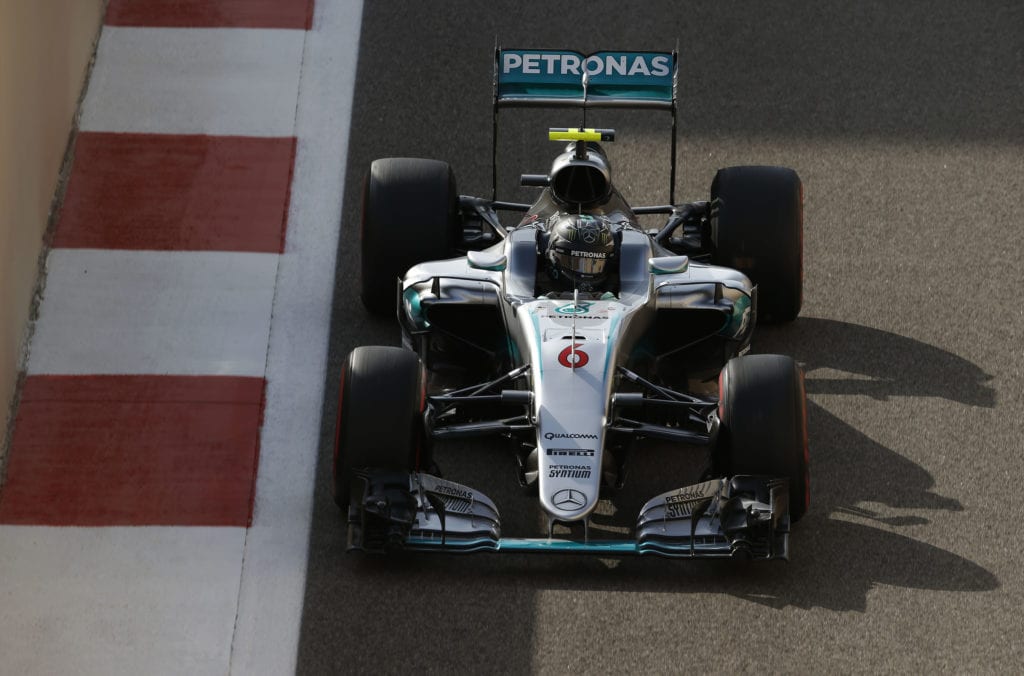
Traditionalist Formula 1 fans looked upon the unedifying Rosberg-Hamilton public performance with reactions ranging from tolerant disappointment to disgusted rage. “Schoolkids” – “Infantile” – “…I’d put them both over my knee” – were some of the more printable criticisms I heard – not least from members of the ‘Ancient Pilots’ Club’ and the most influential British Racing Drivers’ Club.
Occasionally old hands rushed to their defence. “Cut them some slack” – “You’ve got to appreciate the pressures they are under” – “Top-level drivers have to be selfish or they’re not truly top-level” – and more of the same. But not, in my experience, quite as much as the volume of relentless criticism these two truly talented drivers have been attracting.
Three-time World Champion Hamilton got the lion’s share of blame. With so much credit in the bank as one of the sport’s greatest-ever talents, he could surely have afforded to be more pleasant – just plain ‘professional’ – in his public demeanour, in his public comments and in his on-screen attitude to his team-mate and challenger? The frosted sense of affront whenever Rosberg beat him to another pole position, or to another race win, demonstrated an innate sense of foiled – and baseless – “entitlement”.
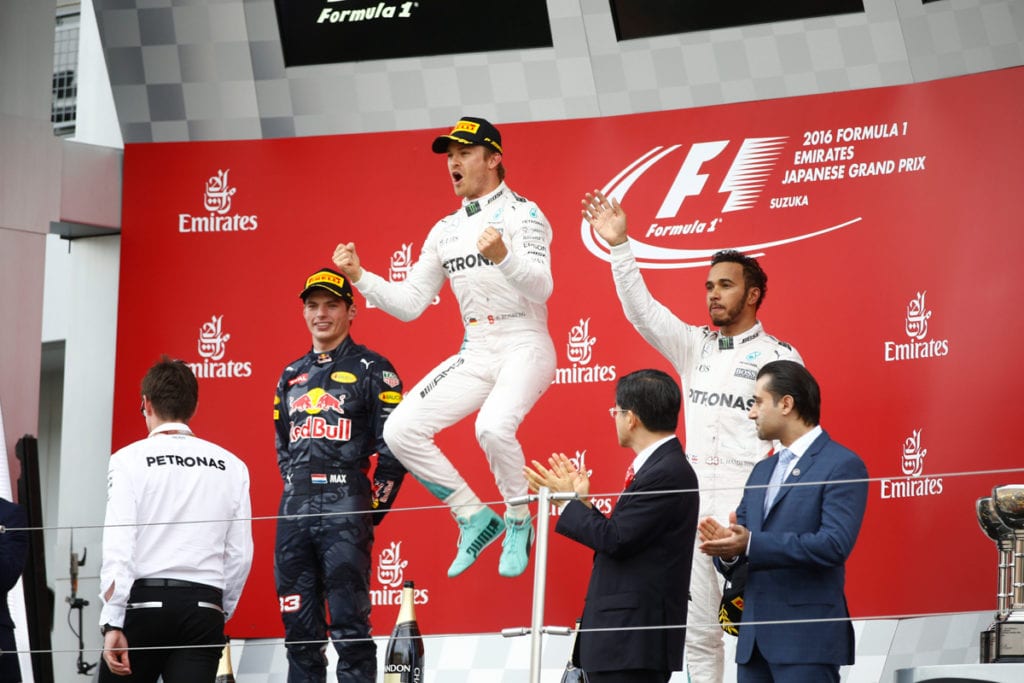
Rosberg appeared to do little to improve the situation – perhaps to laugh or shrug it off, which would surely have needled and belittled Hamilton even more…conceivably to Nico’s advantage. With Hamilton apparently setting the seemingly infantile pace, Rosberg could have done more not to match it.
But that did not happen.
So where – within this tense intra-team atmosphere – did the Mercedes-Benz Formula 1 management sit? One would assume the German giant is in Formula 1 to project its brand globally, to extend its world market beyond the middle-aged and older, and way beyond the diesel taxi market for which such rivals as BMW had long derided Stuttgart’s finest.
But despite the best efforts of Toto Wolff and the grizzled, plain-speaking three-times World Champion Niki Lauda (been there, done that), the dispiriting antipathies between their two team drivers continued to play out publicly. Since F1 had just been sold into new American hands, such a support-sapping spectacle couldn’t have developed at a worse time.
After Hamilton’s brand-new engine had failed with such smokey finality when he was dominating the Malaysian Grand Prix, and Nico Rosberg had then won the following Japanese GP, it was always a case of the German being ahead in the race to clinch his first World title, while the Englishman would have to win every one of the year’s final four GPs even to threaten that outcome.
Truth is, Lewis darned nearly did it. He did win every one of those final four races: at Austin, in Mexico City, at Sao Paulo and in Abu Dhabi. But with Rosberg as his barely perturbed podium mate each time, he ended-up five points short of securing his fourth World Championship and his third in succession for Mercedes-Benz. Thus Nico Rosberg achieved his childhood ambition of emulating his dad – the irrepressible, always spectacular Keijo ‘Keke’ Rosberg – in becoming Formula 1 World Champion.
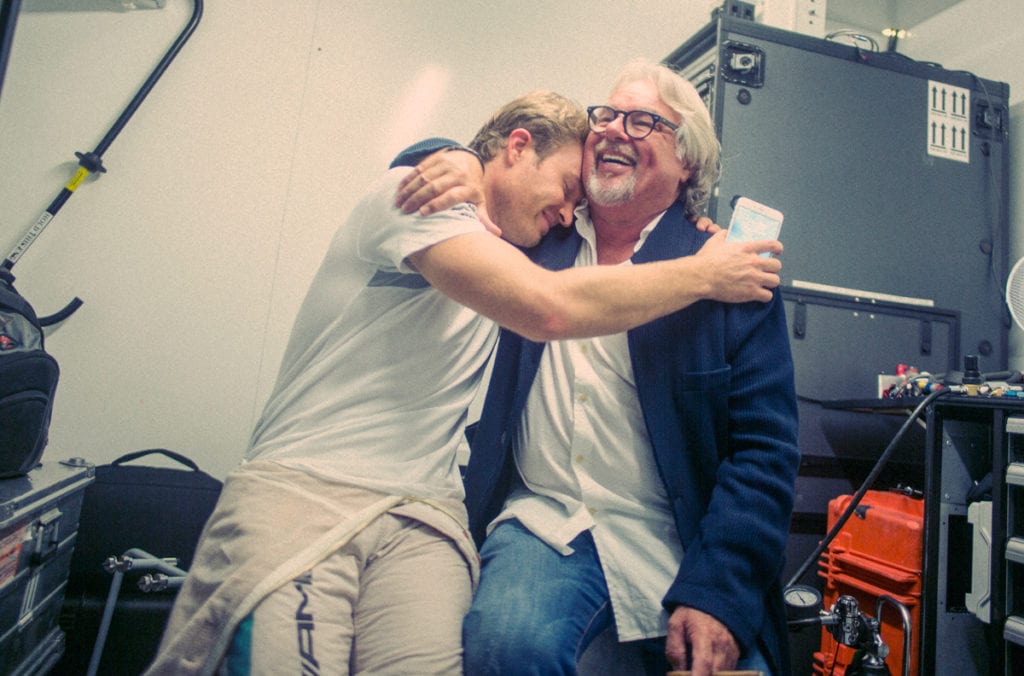
Under the floodlights of the Yas Marina circuit in Abu Dhabi, Hamilton did everything possible to deprive his team-mate of success. But with Rosberg settled into second place in the closing stages Lewis had very few shots left. If he tore round to win – as he was plainly capable of doing – he would still fail to overtake his title rival’s points total, should Rosberg finish even as low as third in his wake.
Possible mechanical failure aside, Lewis’s only chance was to slow the pace sufficiently to back Rosberg into the grasp of their pursuing rivals, and hope that two of them might pressure Nico into a driving error, or find some way past. And there was the off-chance that in close-quarter combat with a Ferrari or a Red Bull, Rosberg might become involved in a collision, and his failure to finish would then have given Hamilton the title.
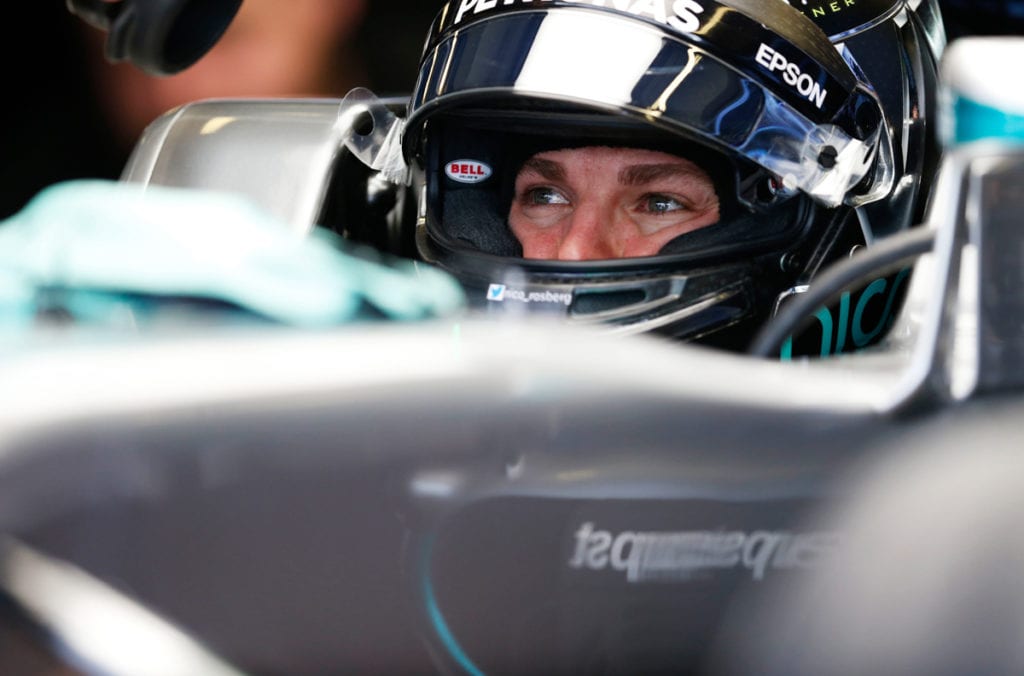
But Rosberg took second place with a spectacularly clean overtaking manoeuvre on young Max Verstappen’s Red Bull. He then drove with the CRISP, intelligent competence that has characterised his Mercedes-Benz career, holding second place to the finish. His only real challenger, Seb Vettel of Ferrari, perhaps decided he might prefer a fellow German as new first-time World Champion – instead of Hamilton joining him as a four-time top dog.
The top four cars streamed past the chequered flag, just 1.6 secs covering the complete quartet. Hamilton won the race, Rosberg was second to take the Championship. And immediately post-race – as Rosberg completed a heart-stoppingly rule-defying series of smoky doughnuts in celebration on the pits straight – Lewis Hamilton had a fleeting opportunity to make everyone love him (or at least, truly respect him as ‘A Total Racer’).
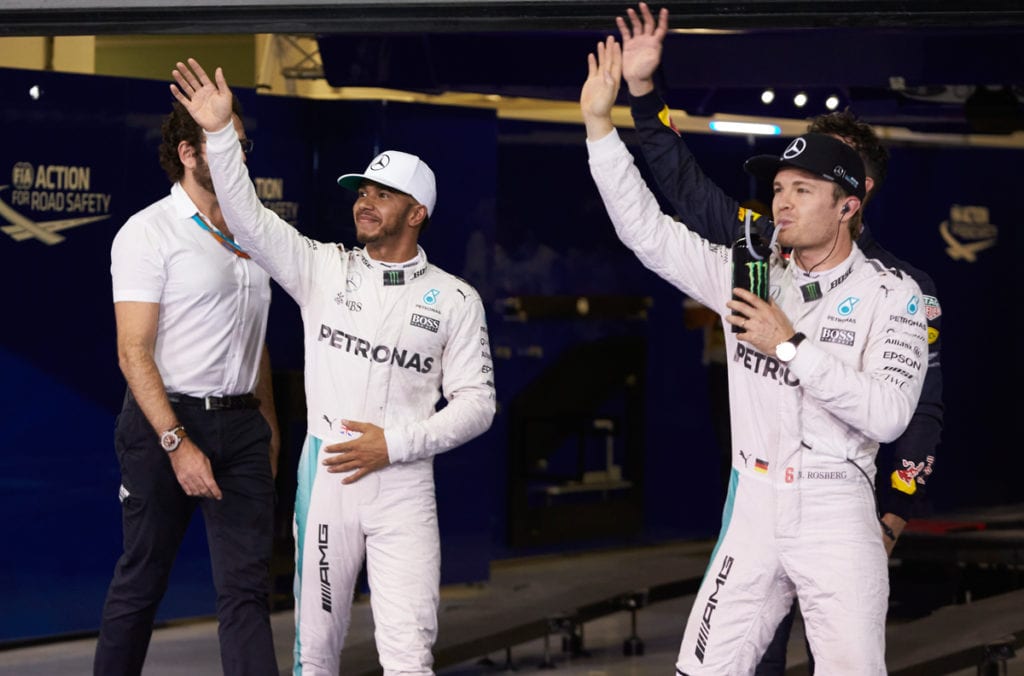
As a great sportsman who fought hard but played fair he could have gone up to his former longtime friend and current team-mate, and now his greatest rival, and have shaken him wholeheartedly by the hand and congratulated him. It would have been a case of “I did my utmost to take it from you, but you’ve won it. Now enjoy it, and cherish it – I’m pleased for you – but I’ll be coming back at you next year.” Rosberg, in his glee, would surely have responded in kind. For public consumption at least – not only Formula 1 would have won, but Lewis and Nico would have come across (at last) as sports Men.
Yet Hamilton blew it. In my opinion, instead of coming across as a great Champion defeated – which would have been so easy – he behaved as a sulky, graceless, no-class jerk. As a confirmed Lewis Hamilton fan — I have been following Grand Prix racing ever since I was six years old, in 1951 – and as a Brit – I feel our boy let us down.
The next day, as Rosberg tells it, he decided that this Grand Prix had been his last. That top-class overtake on Verstappen would be his last great Mercedes-Benz manoeuvre. At the FIA Awards ceremony in Vienna on the following Friday – as reigning 2016 Formula 1 World Champion Driver – Nico announced his immediate retirement.
In contrast to the Hamilton post-race performance in Abu Dhabi, in which his eventual perfunctory praise was delivered through gritted teeth, Rosberg’s retirement announcement has been much admired – a class act delivered with true style. What’s more, as a 31-year-old who has been racing for 18 years – 11 in Formula 1 – with 23 Grand Prix wins, 30 pole positions and now that coveted title of F1 World Champion Driver, Nico Rosberg has plainly fulfilled his career potential.
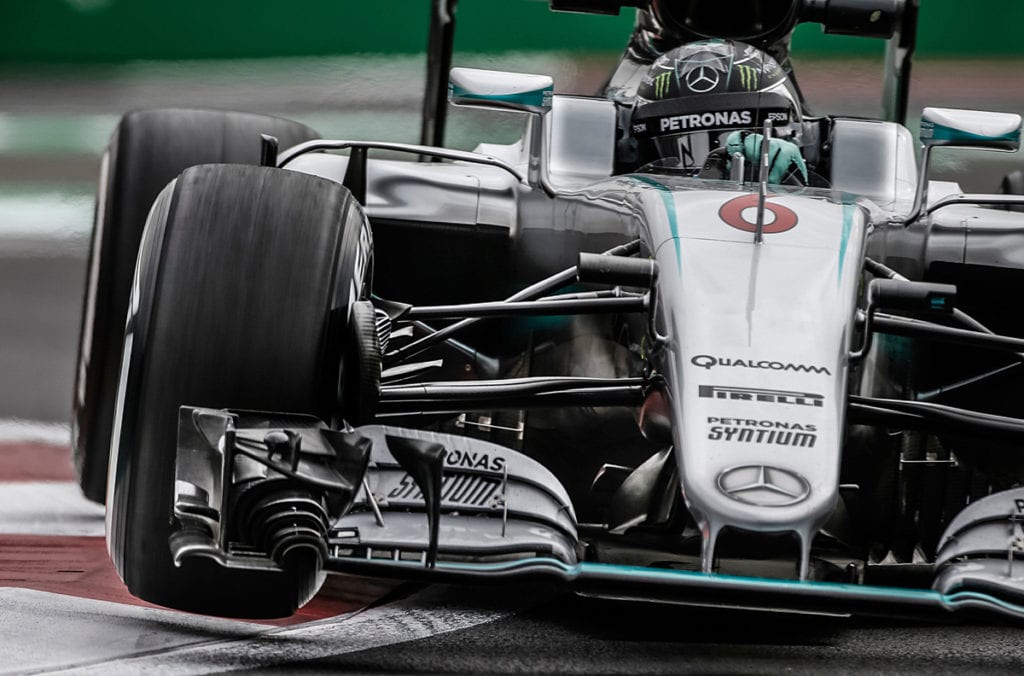
He explained, with praiseworthy grace, that with responsibilities now to his wife Vivian and new daughter Alaia he could not reprise the focus and commitment he plainly needed to match, and then surpass Hamilton. A broader life now beckons him, away from the seeming pettiness of mere pinnacle-class motor sport. And why not? He’s a young, supremely fit athlete in danger of suffering oxygen-deficiency from sitting on his jam-packed wallet.
Meanwhile, what of those arguably less-rounded rivals he leaves behind in what some see as the swamp of current Formula 1? The strain and dramas of winning ten of this year’s Grand Prix races in contrast to Rosberg’s nine has seemed to leave Hamilton with a deep-seated insecurity and readiness to identify any setback as a personal attack. At minimum it’s unbecoming.
Lewis Hamilton is plainly one of the greatest-ever racing drivers. As a mixed-race kid from modest beginnings in provincial Stevenage, north of London, Hamilton has come far. I doubt he has met with truly damaging racial prejudice, although no doubt it has been a factor in building the man we see and often celebrate today. Any sense of separateness within the vast and hugely focused Mercedes-Benz F1 organisation has surely been magnified by his adoption of hip-hop culture.
I haven’t a clue what “hip-hop” entails. But the tattoos and ear-rings mean a driver must be incredibly good for most of his mechanics, engineers and support-crew to be so devoted to him. The no-eye-contact, blanking-your-teammate behaviour has prompted some among them to apologise, discretely, for their man, while defending him with numerous “yeah-buts”.
So how would all of this have gone down in racing times gone by?
Not very well. The most direct comparison is with the 1958 World-title deciding Moroccan Grand Prix at Casablanca. Stirling Moss had to win with his rival Mike Hawthorn finishing no worse than second to confirm the World title for Hawthorn. Like Lewis, Stirling did everything he could, but Hawthorn’s Ferrari teammate Phil Hill stepped aside from second place, waving Mike through, and Hawthorn won the title by a single, solitary point.
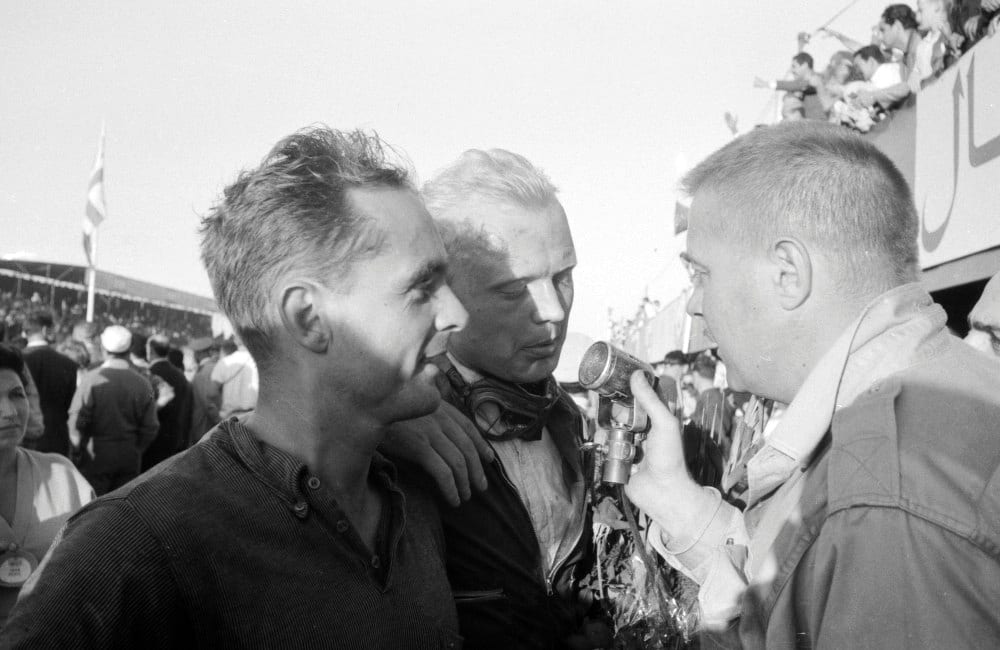
new World Champion Driver Mike Hawthorn finished third and second respectively
But that wouldn’t have happened but for an earlier act of supreme sportsmanship. Hawthorn had been threatened with disqualification from the Portuguese GP, for proceeding against the direction of racing after a spin mid-race. Stirling of the Vanwall team won that race, and went to bat on Ferrari-driving Mike’s behalf with the stewards post-race.
“He wasn’t proceeding against the direction of racing”, Stirling pleaded, “…because he wasn’t on the circuit at the time. I saw him clearly as I went by and he was on the sidewalk!” Stirling’s argument prevailed. Mike set fastest lap in that race, which scored one extra Championship point in those days. That proved to be the Championship-clinching margin come Casablanca.
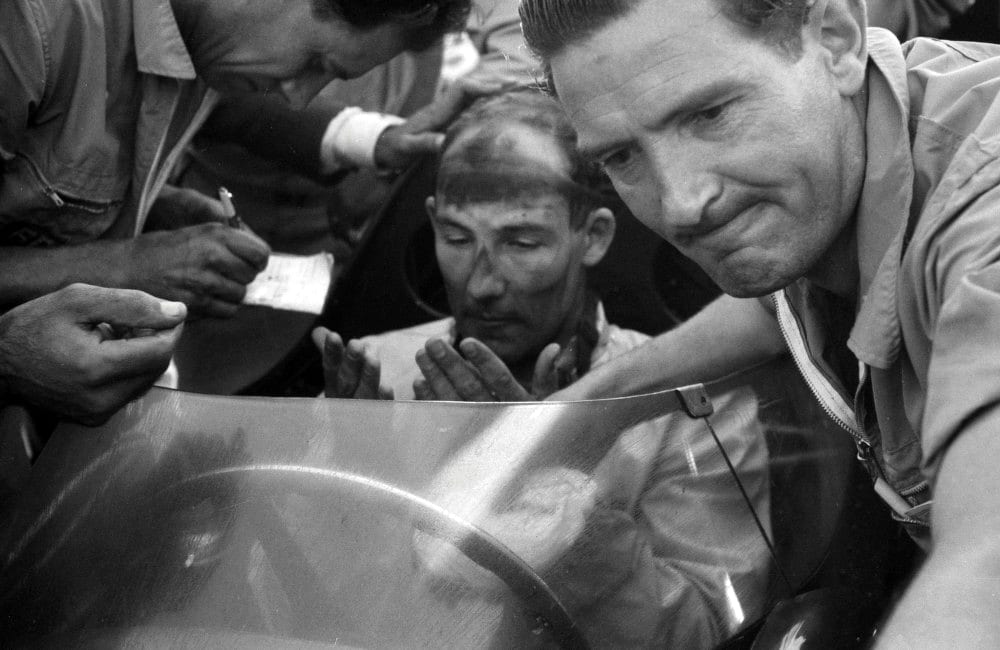
Stirling’s face post-race there had disappointment written all over it. But he still congratulated Hawthorn warmly on his championship – the first-ever by a Brit, which rubbed-in the loss even more painfully for Stirling. But there was no little-kid sulking in sight. Absolutely none.
Perhaps F1 drivers then were simply better-rounded men? Certainly, they hadn’t been consigned to an enclosed sporting avenue from starting karting at age seven or eight. It was an immensely different world.
Nico Rosberg not only won his World title and announced his retirement with consummate style, he also became only the second-ever member of a most exclusive club – that of drivers who have become World Champion like their father. Before Abu Dhabi 2016 this club had a membership of just one – Damon Hill, son of Graham, joined now by Nico, son of Keke.
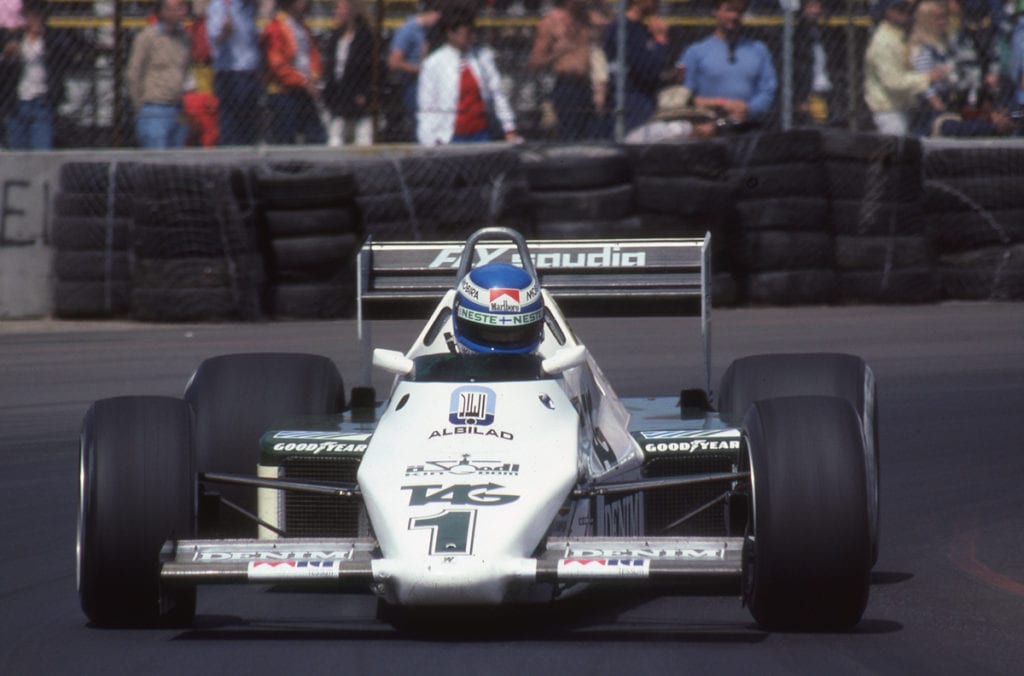
While Nico has won nine GPs to secure his crown, back in 1981 Keke – like Mike Hawthorn before him – won only one solitary Grand Prix in his Championship year. Keke won the French GP at Dijon-Prenois but his podium placings elsewhere punched him to the World title as his Cosworth DFV-powered Williams FW08 became the last naturally-aspirated car until 1989 to carry its driver to the crown. While Nico will be remembered as an impressively smooth, intelligent and thinking driver, father Keke is recalled more for his fantastic, visibly on-the-limit, total commitment and car control.
Make no mistake, we are talking of three great motor sporting superstars here; Nico Rosberg, his father Keke Rosberg and Lewis Hamilton. Two retired one-time World Champion drivers – and one three-time World Champion. As quoted in the German paper ‘Die Zeit’, Nico admits “Sure, I could have gone on, trying to defend the title. But why? It’s easy to want more, more, more, but you also have to be careful and not lose yourself as a person. For me there is nothing more than this title. I wanted it and I got it.
“I feel as though I have climbed Mount Everest, I’m standing on the top and no peak that I see is higher.”
Lewis Hamilton still remains unmatched upon his solitary throne as Formula 1’s standard-setter of his time, yet how sad it is to see him – despite so much success – still more driven than driver.
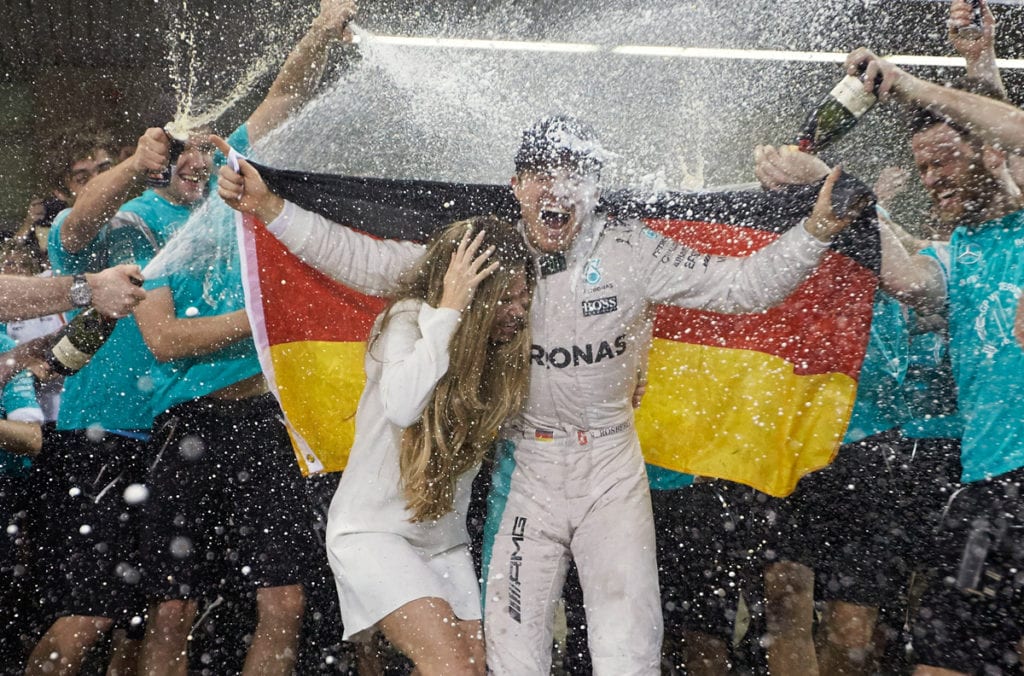
Photos courtesy Mercedes-Benz
